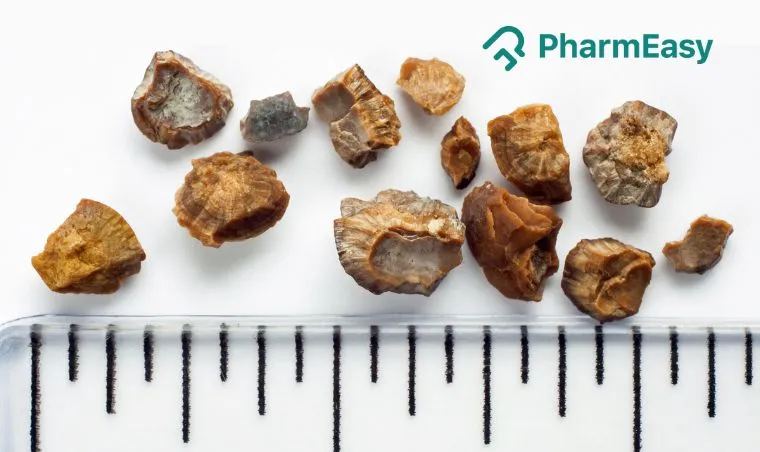Winmal Q 600mg Injection
Price to be Updated
Description
Winmal Q injection is a medicine used to treat chloroquine-resistant Plasmodium falciparum malaria in adults and children over 5 years of age who weigh at least 20 kg. It contains quinine as an active ingredient. It works by killing the malaria parasite in the blood, specifically during the stage where it feeds on haemoglobin. This helps stop the parasite from multiplying and reduces symptoms of malaria.
The injection is given by a doctor or nurse in a hospital or clinic. It is not meant for self-use. After the injection, some common side effects may occur, including nausea, vomiting, ringing in the ears, headache, dizziness, or sweating. A drop in blood sugar and pain at the injection site may also happen, but are usually mild.
This medicine should not be used by individuals who are allergic to quinine or those with conditions such as tinnitus, optic neuritis, blood in the urine, or myasthenia gravis. It needs to be used with caution in people with heart conditions, liver or kidney disease, G6PD deficiency, and those who bruise or bleed easily. Quinine should only be used during pregnancy or breastfeeding if clearly needed and prescribed by a doctor.
Winmal Q injection can interact with many other medicines. Some drugs can increase the risk of side effects, while others can reduce the effectiveness of quinine. These include antifungals, HIV medicines, antibiotics, malaria treatments, epilepsy drugs, and blood thinners. Your doctor may adjust the dose or monitor you closely if you are on these medicines.
The medicine should be stored at a temperature below 25°C, away from sunlight and moisture, and kept out of the reach of children. Since it is administered by healthcare professionals, the risk of overdose or missed doses is low. However, if any signs of overdose or allergic reaction occur, medical help should be sought immediately.
Product Summary
| Offer Price | |
| You Save | |
| Contains | |
| Uses | Malaria |
| Side effects | Nausea or vomiting, dizziness or headache, ringing in the ears (also called tinnitus) |
| Therapy | ANTI-MALARIAL |
Uses
Contraindications
- If you are allergic to quinine or any other ingredients of Winmal Q injection.
- If you have tinnitus, optic neuritis, haemoglobinuria and myasthenia gravis.
Side effects
- Nausea or vomiting
- Ringing in the ears (also called tinnitus)
- Dizziness or headache
- Sweating or flushing
- A mild drop in blood sugar levels, which can make you feel shaky or sweaty
- Pain or irritation at the injection site
Precautions and Warnings
Pregnancy
Breast Feeding
Driving
Alcohol
Other General Warnings
- You take more than the prescribed dose, you may develop serious side effects like ringing in the ears, hearing loss, or vision problems.
- You notice signs of cinchonism (headache, nausea, tinnitus).
- You have heart problems.
- You bruise or bleed easily; this may be a sign of low platelets.
- You have G6PD deficiency, quinine can cause red blood cell breakdown.
- You are pregnant; quinine should only be used for malaria, not for leg cramps.
- You take quinine for leg cramps, but it should only be used if other treatments have failed.
- You have kidney or liver disease, your dose may need to be adjusted.
- You are lactose intolerant; avoid this medicine as it contains lactose.
Directions for Use
Storage and disposal
- Store Winmal Q injection below 25°C, protect it from direct sunlight.
- Do not store above 25°C or freeze.
- Keep it away from children and pets.
- Discard the unused medicine.
Dosage
Overdose
Missed a Dose
Mode of Action
How Does It Work?
Interactions
Interactions with other medicines
- Some medicines can increase quinine levels in the body (like antifungals and HIV drugs), which may lead to more side effects.
- Other medicines can reduce quinine's effectiveness (such as rifampicin, carbamazepine, and phenytoin), making it less effective.
- Quinine can affect heart rhythm, especially if taken with other heart or antibiotic medicines that also affect the heart (like amiodarone or moxifloxacin).
- Quinine can interact with malaria drugs, like mefloquine, chloroquine, and artemether/lumefantrine, leading to reduced effectiveness or increased risk of side effects.
- It can raise or lower levels of other medicines such as digoxin, ciclosporin, and diabetes medications, so your doctor may need to adjust the doses.
- Combining with blood thinners or epilepsy drugs may require close monitoring due to increased risk of side effects or changes in drug levels.
Content Details
Ravindra Ghongade
B. Pharm
Dr. Nikita Toshi
BDS (Bachelor of Dental Surgery), WHO FIDES member
Frequently Asked Questions (FAQs)
Q: What is Blackwater fever, and can quinine cause it?
Q: Can I use Winmal Q injection for leg cramps?
References
- Strides Pharma UK Ltd. Quinine sulfate 200 mg tablets – Summary of Product Characteristics [Internet]. Electronic Medicines Compendium; 24 January 2025 [cited 2025 Jun 21].
- Central Drugs Standard Control Organisation. Drugs. [Internet]. New Delhi: Directorate General of Health Services, Ministry of Health & Family Welfare, Government of India; [cited 2025 Jun 21].
Did you find this medicine information helpful?
Please rate your experience



















